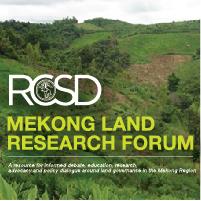Resource information
Since the 1980s, while trying to maintain political stability and territorial integrity, the Vietnamese state has strongly moved towards the transformation of a centrally-planned economy to a more market-oriented model, in which private, foreign and joint-venture businesses are increasingly becoming the key pillars of the national economy. Another key aspect of the Đổi Mới’s agenda was a fundamental shift in the party-state’s foreign relations policy toward a normalization of Vietnam ’s diplomatic and trading relations with China , the United States , and other countries since the early 1990s. Over twenty years after the Đổi Mới renewal renovation, Vietnam has been praised by various domestic and international institutions for its “impressive” achievements in socio-economic development and poverty reduction and for its gradual liberalization and market diversification, coupled with its commitment to equality. Consequently, this has changed the relationship between the party-state and society in a number of fields, including the control of agricultural land and other forms of natural resources. Such transition marks a great change in our scholarly understanding of Vietnam . This Occasional Paper will contribute useful elements for understanding the social, political and economic dimensions of contemporary rural Vietnam.


